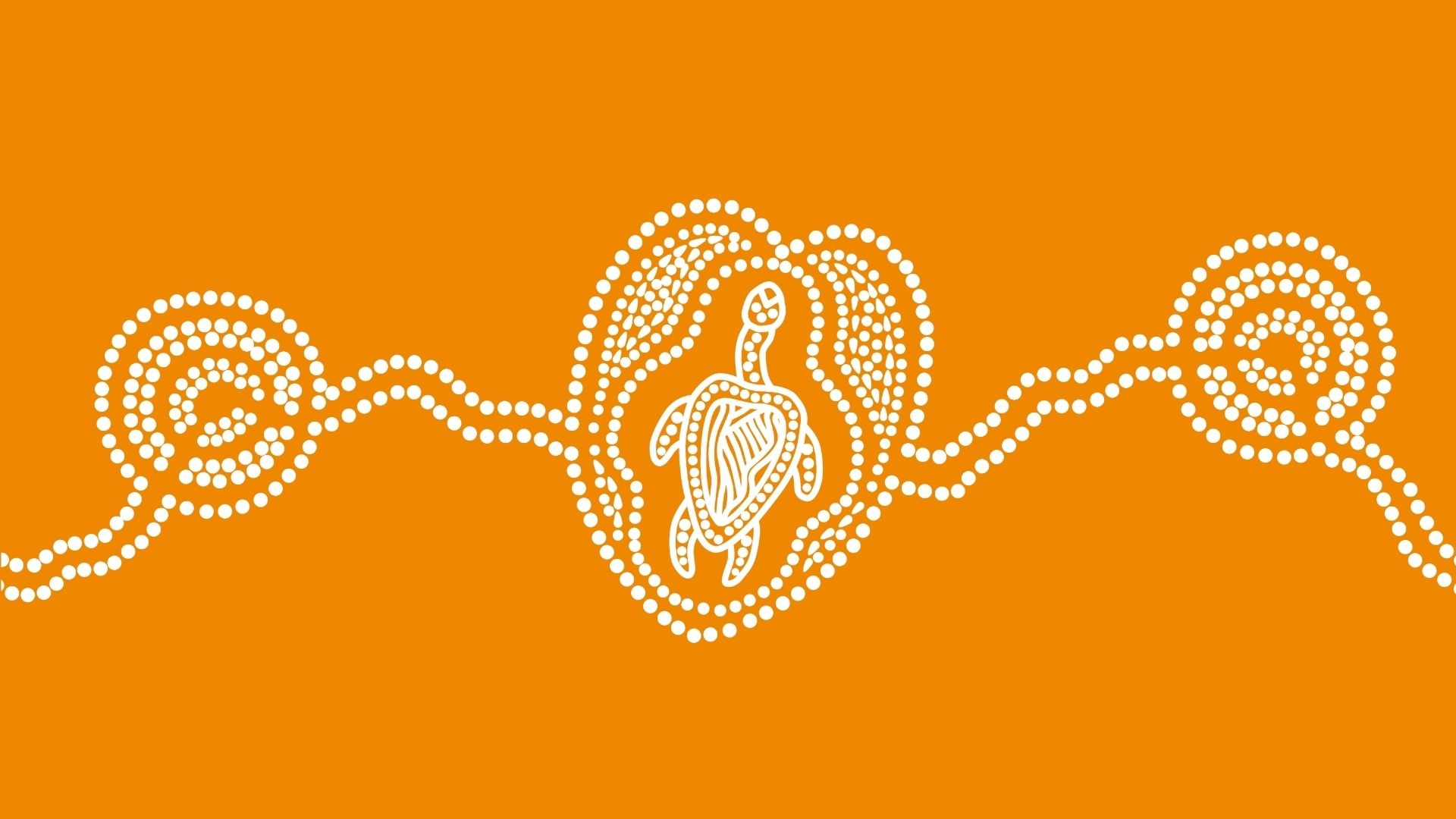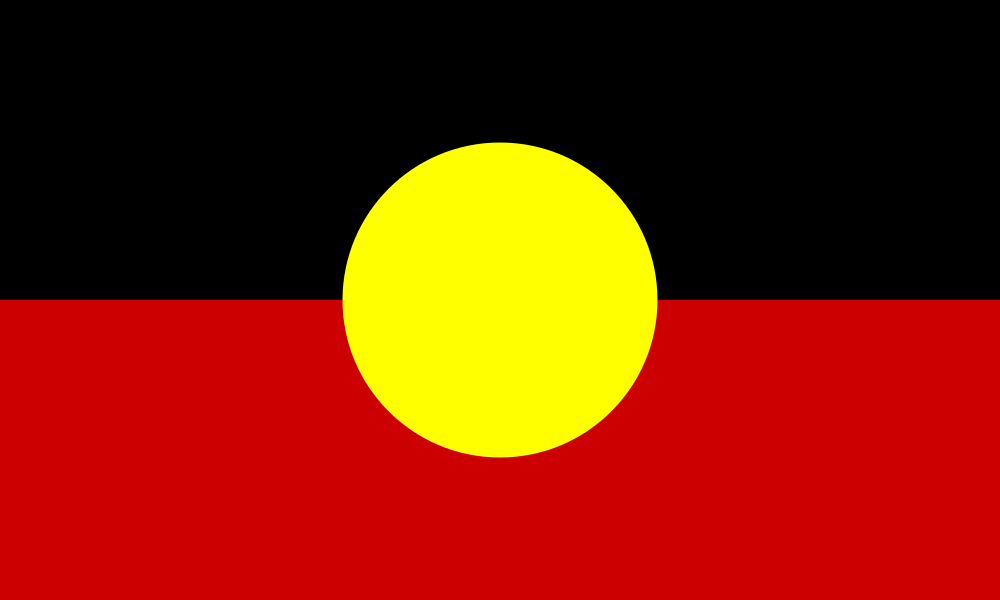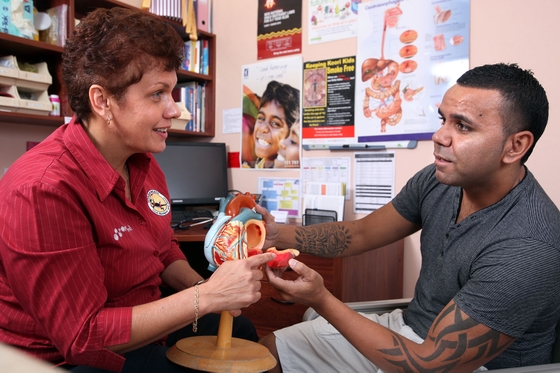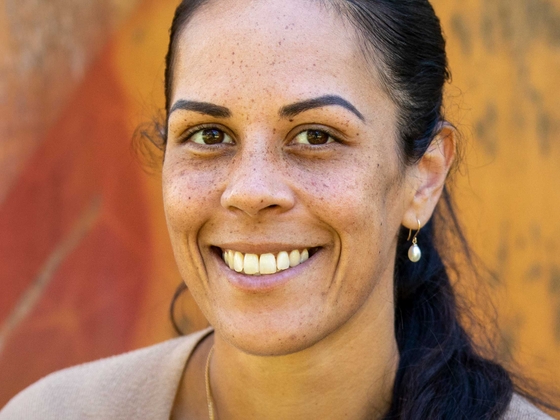
First Nations team


Acknowledgement
The Heart Foundation acknowledges the Traditional Owners and Custodians of Country throughout Australia and their continuing connection to land, waters and community. We pay our respect to them and their cultures, and Elders past, present and emerging.
Our mission
The First Nations Heart Health team advocates and strives for improved heart health outcomes for First Nations people across Australia.
We do this by incorporating First Nations culture and knowledges, raising awareness and providing education aligning with the organisation's Health for Every Heart strategy and priorities.
We aim to improve health literacy through co-designed resources, and we are working towards building the Heart Foundation’s cultural competency and capability to ensure the work across all teams throughout the organisation incorporates a cultural lens to their offerings.
What we do
- Resource development: Developing heart health information and resources that are culturally safe and engaging, with a focus on equitable access for First Nations peoples.
- Champions4Change program: Leading and delivering the Champions4Change program; a culturally safe prevention and support program for First Nations people living with acute rheumatic fever and rheumatic heart disease.
- Meaningful projects: Support better heart health by building strong partnerships and delivering meaningful projects to First Nations communities.
- Internal collaboration: Support Heart Foundation teams by providing advice and support on projects that impact First Nations people.
- Advocacy: Support and promote First Nations events through partnerships and advocacy efforts.
Meet our team
Professor Sandra Eades
Chief Medical Advisor, First Nations Health
Noongar
Professor Sandra Eades (BMed, PhD, FAHMS) is the Heart Foundation’s inaugural Chief Medical Advisor – First Nations Health. Professor Eades is a Noongar woman from Mount Barker, WA. She completed her medical degree in 1990 and after working as a GP, started her career in health research at the Telethon Kids Institute.
In 2003 she became Australia's first Aboriginal medical doctor to be awarded a PhD. Her PhD investigated the causal pathways and determinants of health among Aboriginal infants in the first year of life.
As well as being Associate Dean (Indigenous), she is also a Professor at the Centre for Epidemiology and Biostatistics, Melbourne School of Population and Global Health.
Professor Eades was named NSW Woman of the Year 2006 in recognition of her research contributions to Aboriginal communities and has received a 'Deadly Award' (National Aboriginal and Torres Strait Islander Awards) for Outstanding Achievement in Health.

Jacinta Hegarty
First Nations Health Lead
Arrernte
Jacinta was born on Mparntwe lands (Alice Springs) of Arrernte people and raised in Darwin on Larrakia country. Jacinta’s professional background is as a mental health Social Worker, and she has close to 10 years' experience working with young people at risk and supporting the social and emotional wellbeing of their families and supports.
She is motivated by a commitment to social justice, particularly concerning the inequitable health and social outcomes First Nations face across range of areas. Jacinta brings to the team her skills in applying a strengths-based approach to engagement and valuing lived experience in shaping outcomes.

Tennele Shields
First Nations Heart Health, Senior Project Officer
Nyikina
Tennele was born and raised in Darwin on Larrakia country with her father’s family descending from the Nyikina people from the Kimberely region in WA.
She has worked in the not-for-profit sector for the past 10 years, predominantly in health promotion and is passionate about helping people and contributing to positive health outcomes.
With her lived experience of losing a loved one to cardiac arrest in 2020, and her family history of cardiovascular disease from her father’s side, she aligns with the Heart Foundation’s mission and values and hopes to use her life experiences, compassion, empathy, and determination to contribute to better heart health outcomes for First Nations people.

Nora Sevallos
First Nations Heart Health, Senior Project Officer
Central/Southern Arrernte, Alyawarre
Nora was born and raised in Mparntwe (Alice Springs) which is her maternal grandfather’s country and has very strong connections to Central Australia up to Utopia and Ampilatwatja which is her maternal grandmother’s country. Nora is based in Adelaide and has lived and worked in South Australia for over 20 years. Nora has built many relationships and connections within the community in SA over the years.
Nora’s strength is community engagement and has worked in the health and wellbeing space for many years. Her passion is promoting and raising awareness for positive health outcomes for our First Nations people.
La-Toniya Norris
First Nations Heart Health, Project Officer
Kaanju, Kowanyama, Gunggandji, Waibene, Hanuabada
La-Toniya is a proud Papuan, Aboriginal, and Torres Strait Islander woman, currently serving as the Project Officer for the First Nations Heart Health Team. She has strong connections across Far North Queensland, Torres Strait Islands and Papua New Guinea.
With a background in finance, community engagement, and education, La-Toniya is passionate about improving the health and wellbeing of First Nations communities. Guided by the Heart Foundation’s mission and values, she works to create meaningful change, bridging health inequities through a holistic approach that values community, culture, and wellbeing.
You might also be interested in...

First Nations heart health
More First Nations people are impacted by cardiovascular (CVD) than other Australians.

Every Heart – our Equity, Diversity and Inclusion Strategy
The National Heart Foundation of Australia’s strategy for improving equity, diversity, and inclusion – 2024 to 2029

Leadership team
The Heart Foundation leadership team brings together experience from commercial, government and charity sectors to lead our fight for all Australian hearts.
Last updated25 November 2025